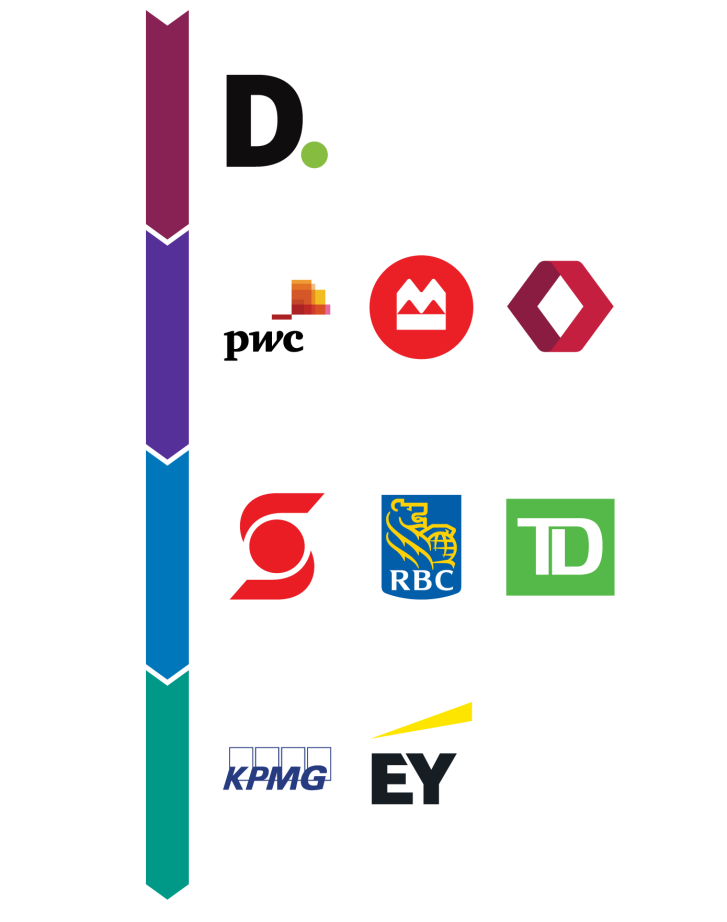Employers are lifting COVID-19 vaccination requirements and employees sent home for refusing to get vaccinated are flooding back. We asked experts how we should deal with what already looks like a messy situation.

The executives at Maple Leaf Sports & Entertainment were hardly the only bosses hyping their supersafe COVID-19 protocols.
Back in September, when then-CEO Michael Friisdahl touted the company’s vaccine mandate for staff as the “the ultimate safeguard” against the Delta variant and whatever came next, MLSE joined ranks with a wave of employers expelling workers who refused the jab.
But a safeguard from the virus, of course, wasn’t a safeguard from internal backlash.
Not long after the words left Friisdahl’s mouth, MLSE wound up in legal arbitration with a disgruntled workers’ union defending its furloughed members.
Several MLSE employees had been suspended without pay for refusing to disclose their vaccination status — one of them, an employee of 10 years who set up event spaces in Scotiabank Arena — and the union argued the mandates were an invasion of workers’ medical privacy.
Bay Street drops vaccine mandates
In a reversal of previous COVID-19 policies, major white-collar employers have been steadily allowing staff to work in-office over the past few months without needing to confirm their vaccination status.

Like many companies in similar entanglements, MLSE held firm to its position, and eventually the arbitrator sided with the company’s choice to suspend noncomplying workers, prioritizing management’s need to protect staff from the virus.
But within months of the dispute’s settlement, and as COVID-19 cases began declining in Ontario in March, the company lifted its vaccine mandate and began askingthose laid-off workers to get back to the job.
That awkward scenario — workers and bosses fighting over COVID-19 mandates, only to come face to face at the office a few months later — is now playing out in workplaces across the country.
While employers lift vaccine requirements and reel their once-suspended workers back to work, many are finding themselves embroiled in legal battles with employeeswhile also struggling to accommodate both the COVID-cautious and vaccine-averse.
Last summer, as COVID-19 numbers crept up, a wave of employers introduced new rules for their workforces: get two shots or face discipline.Initiated in the public sector, these mandates were quickly adopted by Bay Street firms and big-name retail chains.
But now, with governments lifting the bulk of their COVID-19 restrictions, many of those same companies say they can no longer justify keeping their vaccine mandates in place when government medical authorities are removing them.
Between March and June, several major white-collar firms dropped their mandates in quick succession — Deloitte, KPMG, Ernst & Young, and Canada’s Big Five banks included — and began asking workers back, at least part-time.
Last Tuesday, the federal government announced it was abandoning its vaccine mandates for public servants.
Employers who once harboured peaceful relationships with their staff are elbow-deep in litigation initiated by long-time employees. Co-workers who once chatted idly in front of the water cooler now differ, sometimes vehemently, on whether the water cooler might actually be kindling for a superspreader event.
Andrew Caldwell, a human resources adviser with Peninsula Canada, said his firm has been inundated with inquiries from employers in recent months asking: “How do we accommodate everyone? How do we deal with so many different views on office protocol?”
In reality, it won’t be easy. More than 40 per cent of Canadian workers started working remotely at the outset of the pandemic, largely in white-collar professions. Two years later, that figure has shrunk to 20 per cent.
But polling indicates that many workers are broadly reluctant to return to the office for reasons ranging from health concerns to the rising costs of commutes.
According to a recent Amazon Business Canada poll, just 12 per cent of workers say that working entirely in-office is their ideal working scenario, while 43 per cent say they are likely to look for a new job if their employer mandates a full-time return.
Moreover, those who do return will have all kinds of unique and contrasting preferences. Some willprefer masks, others will detest them. Some will worry about high-risk family members at home. Some have said theycan’t bear the thought of sharing work stations.
“You’ll have those who are ultra-cautious and don’t go near anyone, and then there are those who are throwing all caution to the wind and forgetting whatever protocols are technically in place. Somehow, employers have to balance this,” said Caldwell.
Colin Furness, an epidemiologist at the University of Toronto, said companies should create office environments that can separate vaccinated and unvaccinated workers to help limit virus spread.
Unvaccinated people have a much greater chance of being asymptomatic while infected with the virus, raising the likelihood of bringing COVID-19 into the office without knowing they’re sick, Furness said.
“To simply welcome everyone back without protections and act like contagion just isn’t a thing anymore — that’s a terrible idea,” said Furness. “You need to have barriers in place.”
Some businesses are testing this. Accounting firm PricewaterhouseCoopers, after dropping its COVID-19 safety measures in April, created two floors for employees at its office in the financial district: one for mask-wearers, and one for everyone else.
But those divisions, paradoxically, raise concerns of their own: Will segregated floors and workspaces just deepen the divide between co-workers?
While most workplaces say their staff are fully vaccinated — Scotiabank, for instance, boasts a 94 per cent vaccination rate among employees — big employers with sprawling workforces may still have hundreds of unvaccinated workers on their payrolls, waiting for their suspensions to end.
The Toronto Police Service says its workforce is 99 per cent vaccinated. But management still suspended more than 100 officers last November after implementing its vaccine policy. Last week, the force announced that all those employees —vaccinated or not— will return to work by the end of June.
Some of the labour disputes and lawsuits initiated over the vaccine mandates have played out in public.
After the federal government announced it was abandoning vaccine mandates for public servants on Tuesday, reversing a rule that had resulted in more than 1,800 suspensions among federally regulated employees, the Public Service Alliance of Canada (PSAC) said it was still seeking recourse for the members who’d been disciplined.
“Now that the government has lifted its vaccination policy, we expect members who were unfairly impacted to be compensated,” said Chris Aylward, president of PSAC, in a statement.
A day later, when Intergovernmental Affairs Minister Dominic LeBlanc was asked whether the government would reimburse lost wages for those suspended workers, his response was blunt: “Absolutely not.”
Between November 2021 and January, Canadian labour arbitrators heard grievances from dozens of local union branches. Several of the major labour associations — including the Teamsters, the United Food and Commercial Workers and the Power Workers Union — went to bat for their suspended members.
Mediators, for the most part, have sided with employers, affirming their need to protect workers from a contagious virus during the peak of the Delta and Omicron waves.
“It’s clear that the weight of authority supports the imposition of vaccine mandates in the workplace to reduce the spread of COVID-19,” wrote the judge in the MLSE decision from January.
But those decisions haven’t discouraged workers from pursuing legal action, even as they return to the workplace. Privately, a wave of workers have filed wrongful dismissal claims against their employers that could take at least a year to resolve through the court system, lawyers say.
These workers argue that their suspensions were “unilateral” and breached the terms of their contracts, said Jon Pincus, an employment lawyer and partner at Samfiru Tumarkin LLP.
Some argue they did not pose a health risk to co-workers because they were working remotely, while others contend they were put on suspensions that effectively amounted to termination.
“They’re going to say that, now that vaccine mandates have suddenly lifted, it just adds to the staggering list of inconsistencies in how these employers have been employing these policies,” said Pincus.
“Some of these cases will be settled out of court, as the employees and employers come to their own agreements. But we’re seeing many that are not taking that route — that they’re going to take a while to solve,” said Pincus.
“Anyone who’s holding their breath for speedy resolutions is going to go blue in the face before they hear anything.”
In the meantime, workers and employers are left navigating a tenuous workplace that, in many cases, is reuniting colleagues and bosses whose relationships have frayed over two years of upheaval.
“It’s shocking how polarizing many elements of our work lives have become because of the pandemic,” said Caldwell.
“Someone you used to speak with all the time now has wildly different opinions on COVID-19 and vaccines and now it’s hurt your professional relationship. That’s happening at lots of workplaces. And many companies aren’t really sure how to deal with it.”
Article From: Toronto Star
Author: Jacob Lorinc

